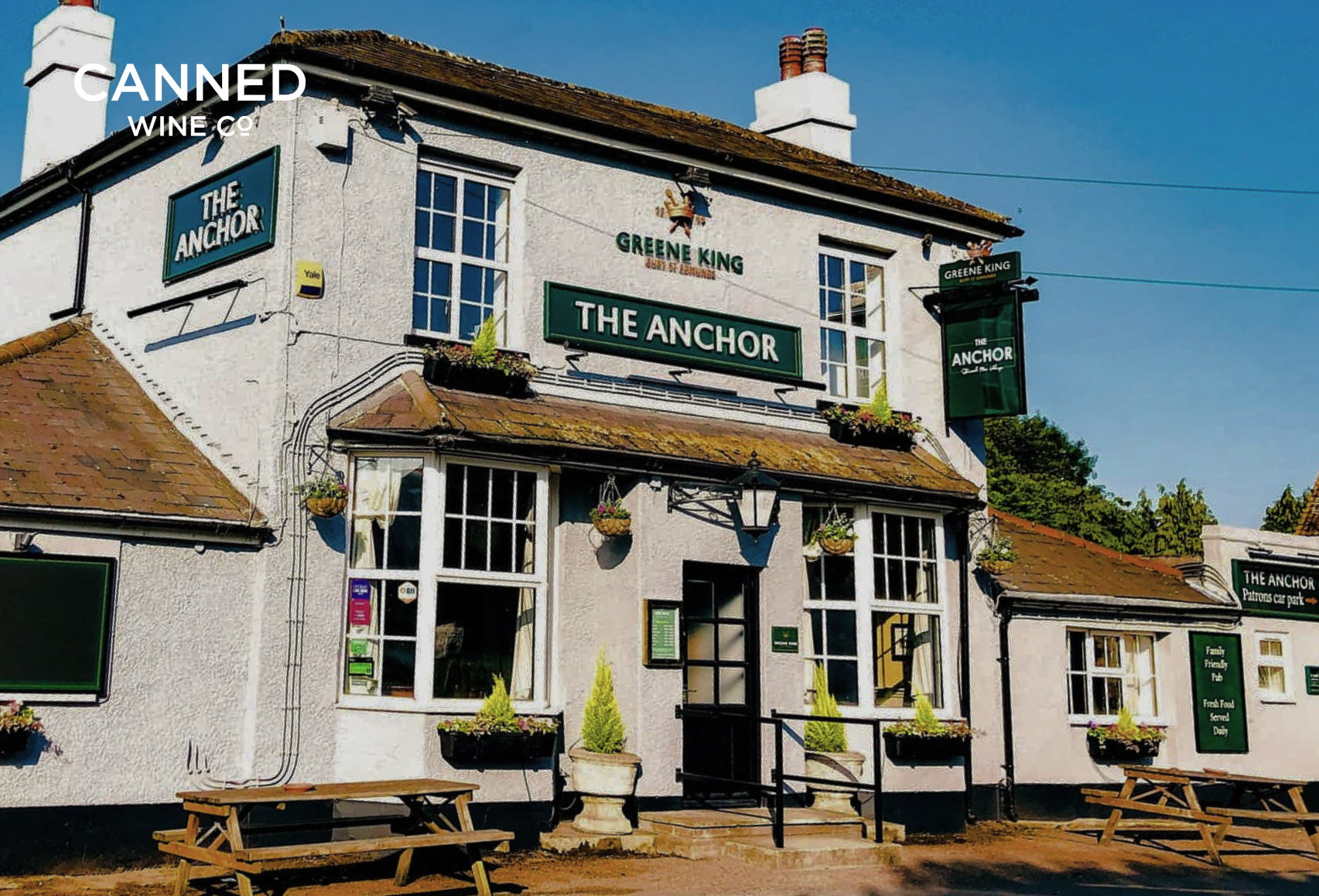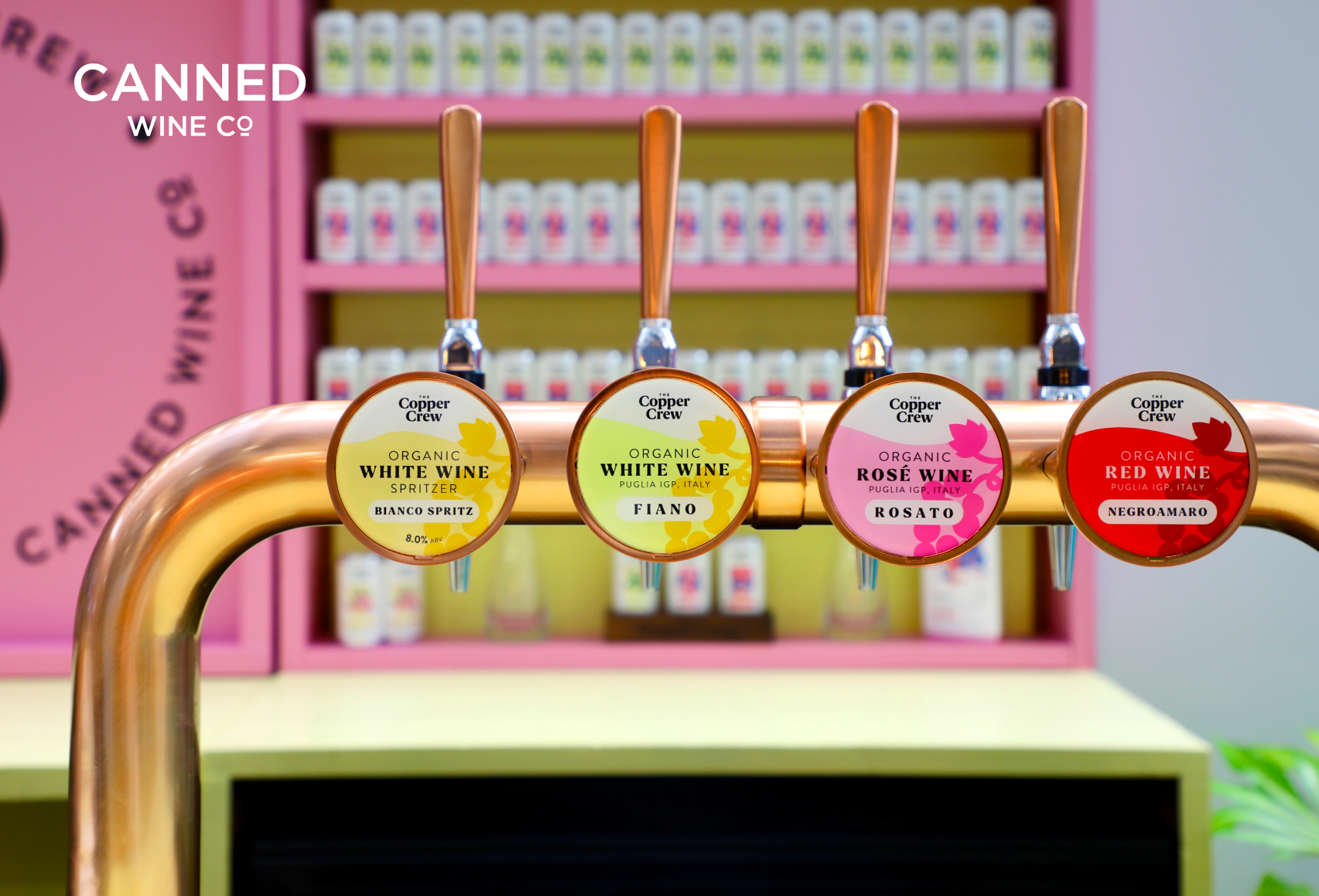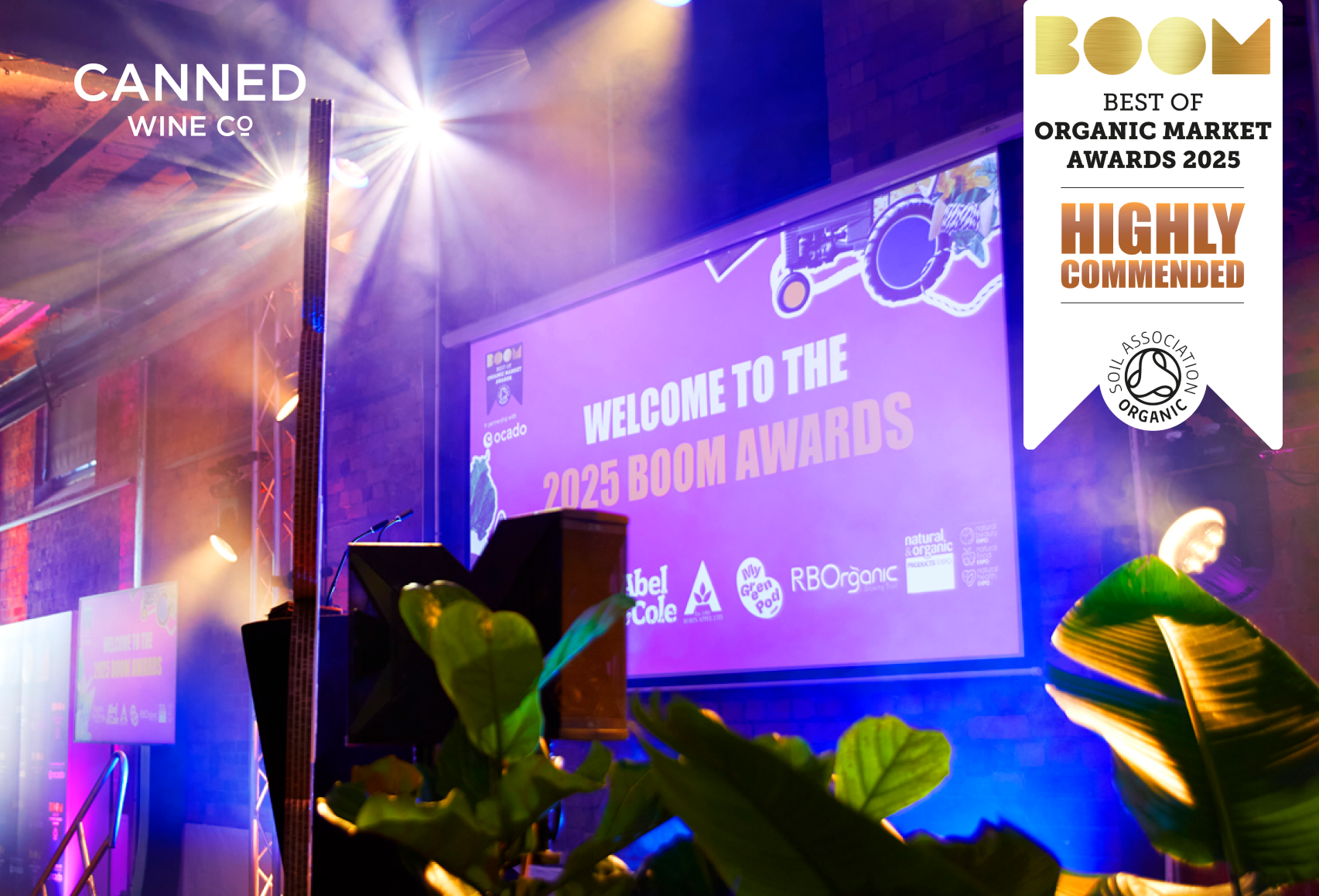Chapter 6 – A sustainable office move
More and more businesses have pledged to commit themselves to a high standard of corporate responsibility and sustainability, and rightly so. Here’s how we stayed committed to our sustainable goals during our office move.
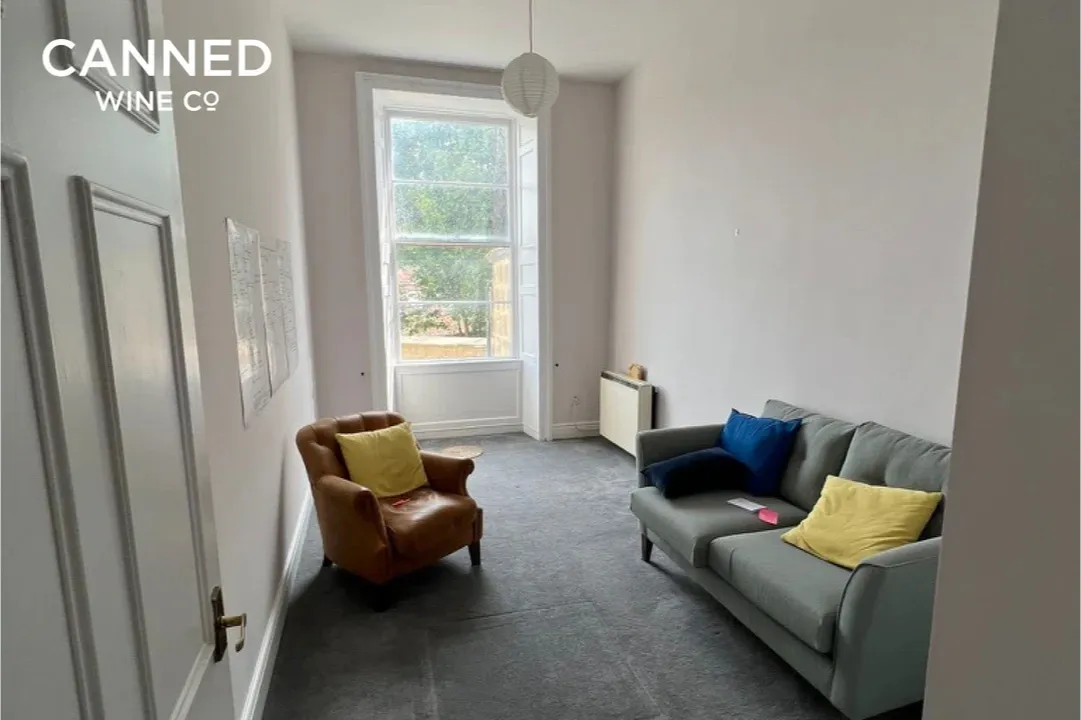
Written by Sophie Heslop-Charman – Office Manager
More and more businesses have pledged to commit themselves to a high standard of corporate responsibility and sustainability, and rightly so. Sustainability is at the very heart of our business, but it isn’t always a straightforward journey.
Our team at Canned Wine Co. has grown quite significantly recently – take a look at our about us page to meet the team! – which meant we rapidly outgrew our office. A bittersweet time for the team, as the office had seen the very start of Canned Wine Co. and held lots of memories, but it had become much too small! Our main office room doubled as desk space, a packing assembly line, photo studio, training and tasting room, while our only meeting room was also the lunch space.
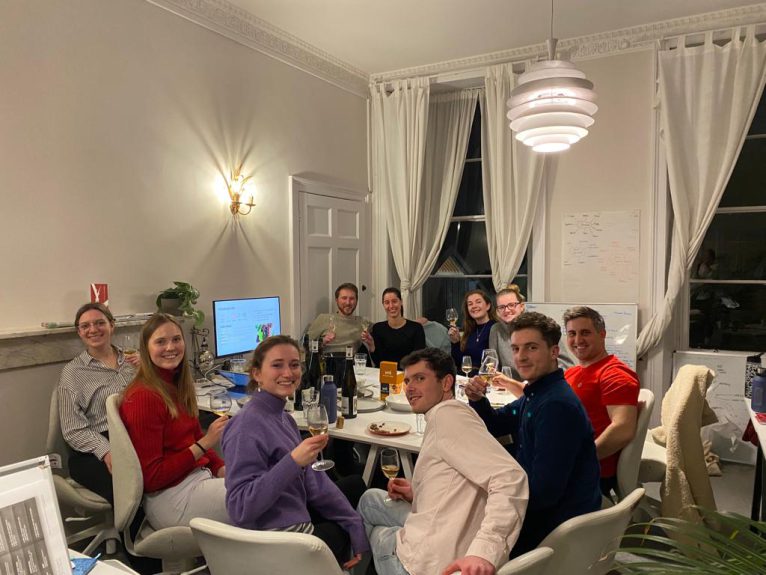
Moving office isn’t dissimilar to moving house, and anyone who has done so knows what an upheaval it is. Considering this, it’s easy for any environmental considerations to be completely forgotten, but we found ways to maintain our sustainability goals whilst moving.
Why we chose our new office
Central Bath is largely made up of beautiful but old buildings which are not necessarily the most accessible. The office we chose was one of the only accessible office buildings in Bath that had a ramp, lift and accessible toilets, which went hand in hand with our aim of being a more inclusive employer. We believe that the welfare of our staff should always be a priority, and we were able to reach an agreement with the office landlord to create a multi-use retreat room. Having a space separate to the office can be used for anything from a place to quietly reflect, rest, pray and to give nursing mothers somewhere to express and store milk.
Having an office in the centre of Bath was important to us, as it allows employees to easily commute by train or bus, and this office was perfectly located. It also had secure bike storage, which coupled with showers, enabling us to encourage employees to cycle to work. It also offers our staff more flexibility for exercise around working hours.
As office moves are expensive and disruptive, we wanted our new office to have longevity, and allow for growth over the next 3 to 5 years. This would let our team grow, as well as offering a spacious and appealing work environment. Nobody works well in an overcrowded space! This office provided a far bigger kitchen than our old space, along with social spaces. It’s great for collaborative thinking; sometimes stepping away from your desk works wonders! We loved how much more employee-friendly this was, as the only meeting room in our old office also functioned as a less than perfect lunch room. Our new office also provides a much longed for multi-functional space where we host wine tastings, customers and suppliers, and run workshops.
Our old office (a converted Georgian flat) was poorly insulated with drafty windows, so we took this opportunity to look for a more modernised building. This was to reduce the need to use air conditioning or heating to regulate the office temperature, and so we can plan to reduce our energy costs and environmental impact.
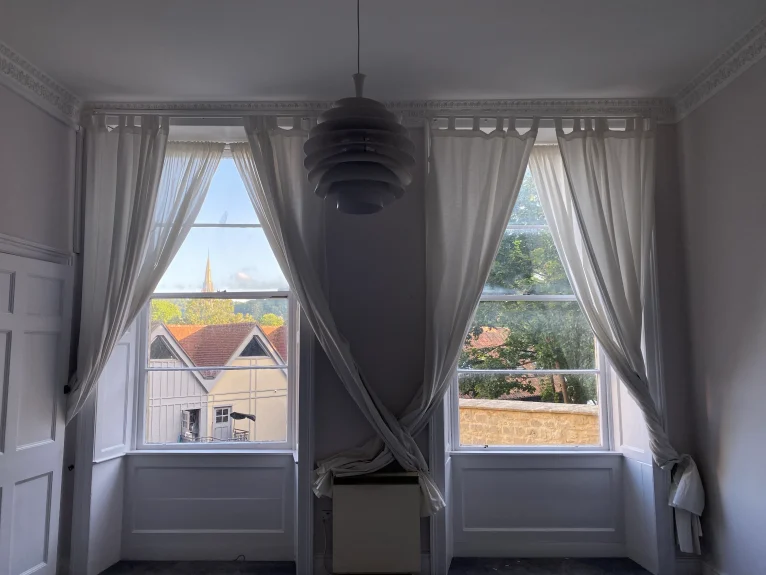
How we did this sustainably as we could
We were lucky that our new office was walking distance from the old office, which meant that we were able to walk to meet any contractors or to be there to accept deliveries, minimising any car journeys. We didn’t want to unnecessarily transport any items that we wouldn’t need in the new office so we did a thorough sort out of everything in the office. Some furniture wouldn’t be suitable for the new office, for example, so we made sure anything like this found a new home prior to the move. We were able to limit buying packing materials by reusing packing boxes we already had – try to think ahead and keep any boxes that deliveries come in in the weeks leading up to your move. Packing supplies can also be costly, so this was a win-win.
One of the most wonderful things that Bath has to offer is the Library of Things, which is a borrowing library where, for a small fee, you borrow tools and items you may only need to use occasionally. We’ve borrowed items from laminators to sanders, reducing the need to buy new tools and reducing our overall consumption. Staff have since borrowed items from there themselves after learning about it.
Rather than simply throwing out our old or unused electrical equipment, we donated items such as keyboards and computer mice to local charity shops. A staggering 2 million tonnes of electrical equipment is estimated to be discarded each year by businesses and households!
Compromises
The last thing we wanted to do was buy everything new for the new office, so we made the furniture and décor items work in the new space with the knowledge that we would be able to add anything we needed once we were in.
Of course, there were things we needed to buy to fully kit out the new office, and this is something we had to compromise on with regards to sustainability. We initially looked at various second-hand selling sites such as Facebook Marketplace and FreeCycle, for things such as desks, chairs and storage units. After much searching, we ended up buying the bulk of furniture new from IKEA. This was partly down to cost, but also because our existing desks were all from IKEA. We wanted to be able to create banks of desks and as such these needed to all be the same size, and we also wanted the office to look aesthetically pleasing. We also considered purchasing furniture from local, independent companies but the financial barrier was too great.
This provided an interesting reflection point, one that didn’t necessary sit comfortably with lots of the team.
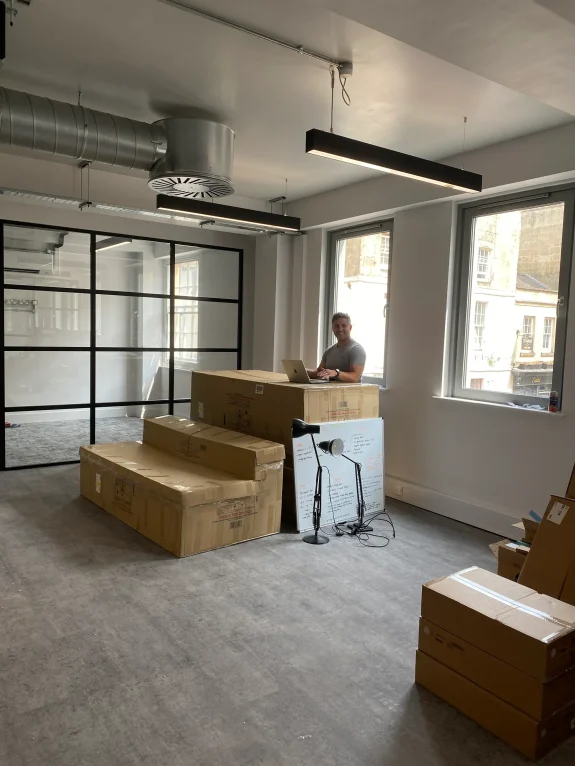
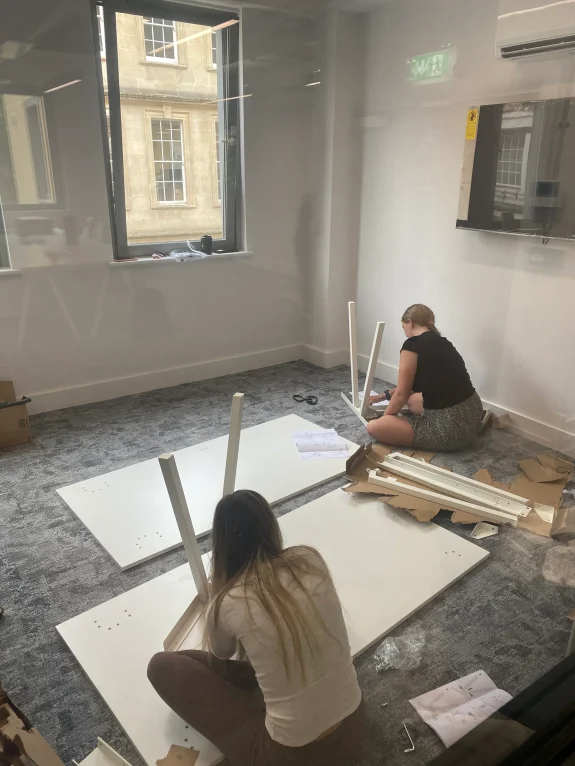
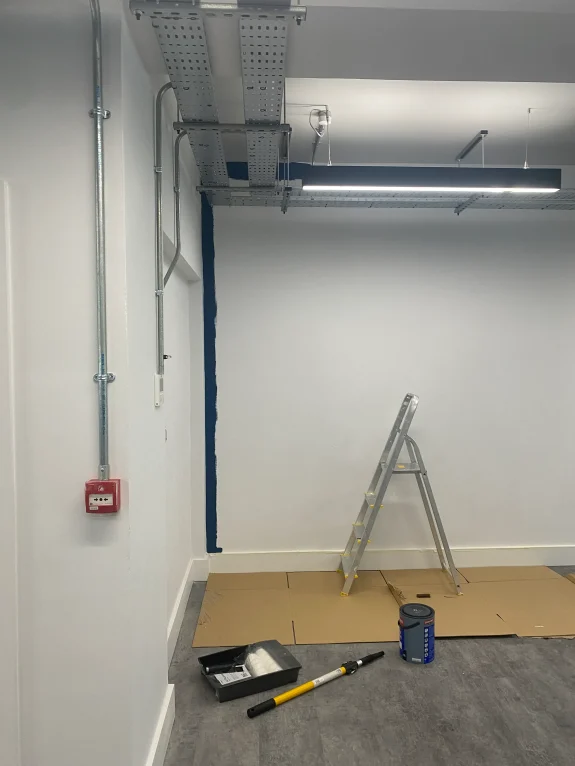



There were some elements where we weren’t able to be as environmentally friendly or sustainable as we would have liked to be, often down to cost. Operating as a small business means constantly weighing up our sustainability and environmental goals vs cost, and quite simply we do sometimes have to make decisions that we wouldn’t if cost wasn’t an issue. Using a removal company with electric vehicles and green credentials proved significantly more expensive and out of budget. We did however make sure to use a local, family-run business rather than a multinational. We also made sure to pack as much as possible into the van to prevent unnecessary journeys. We even carried the final bits across to the new office ourselves on foot – all part and parcel of being a small business!
Safe to say, we don’t have plans to move offices again anytime soon!


